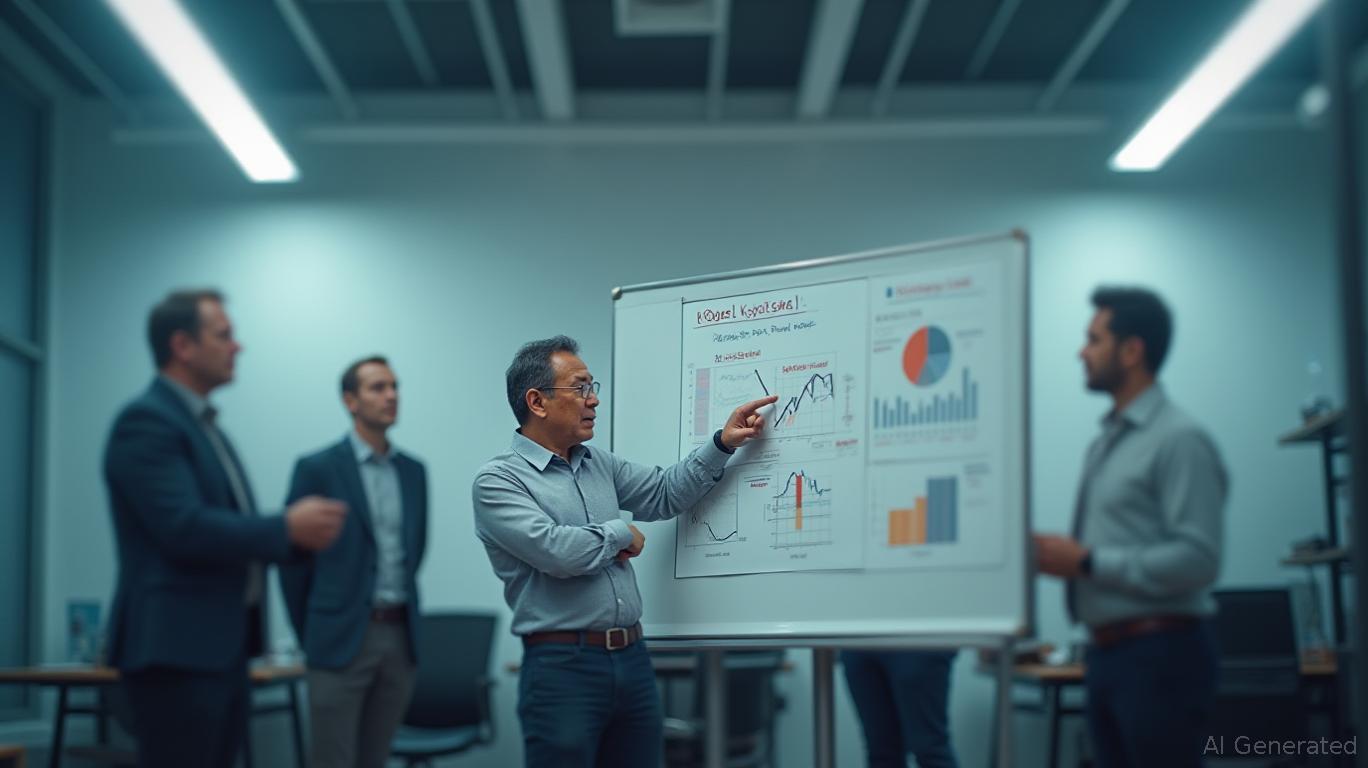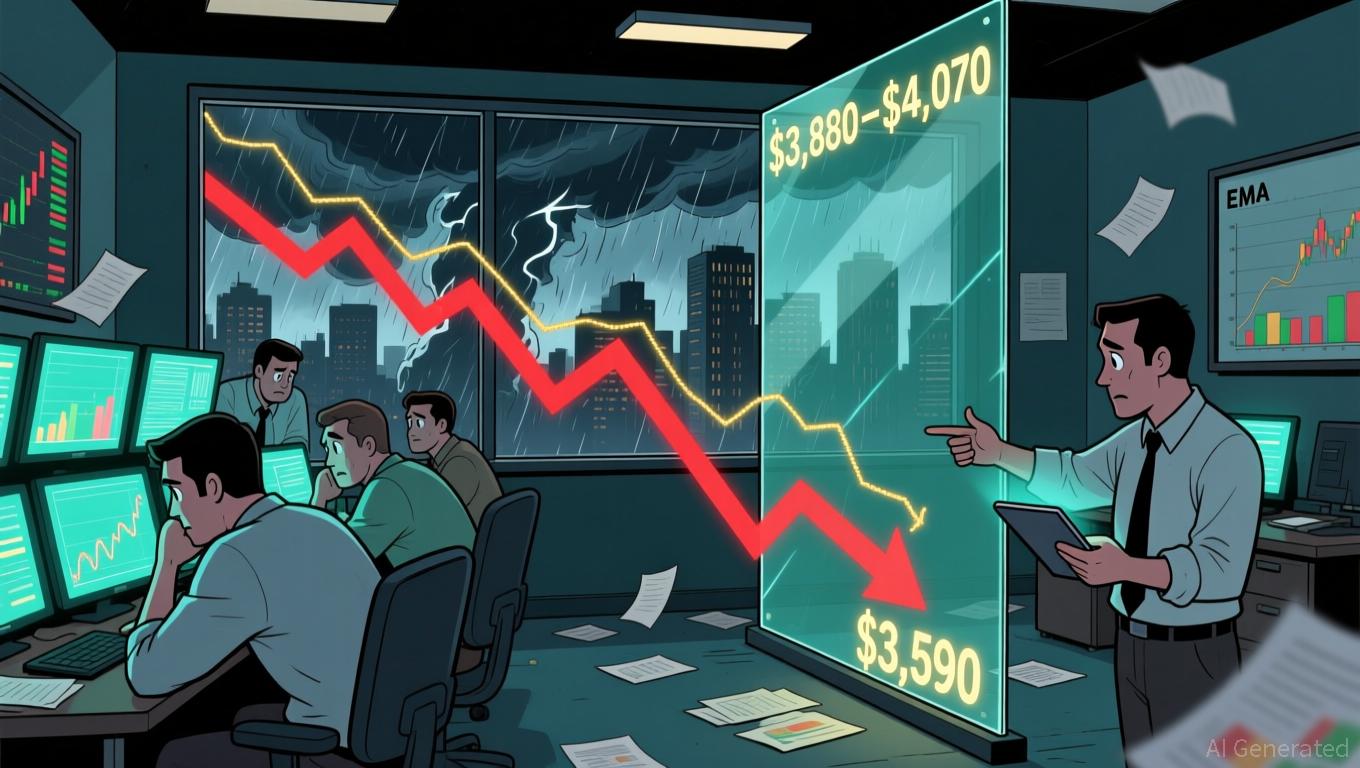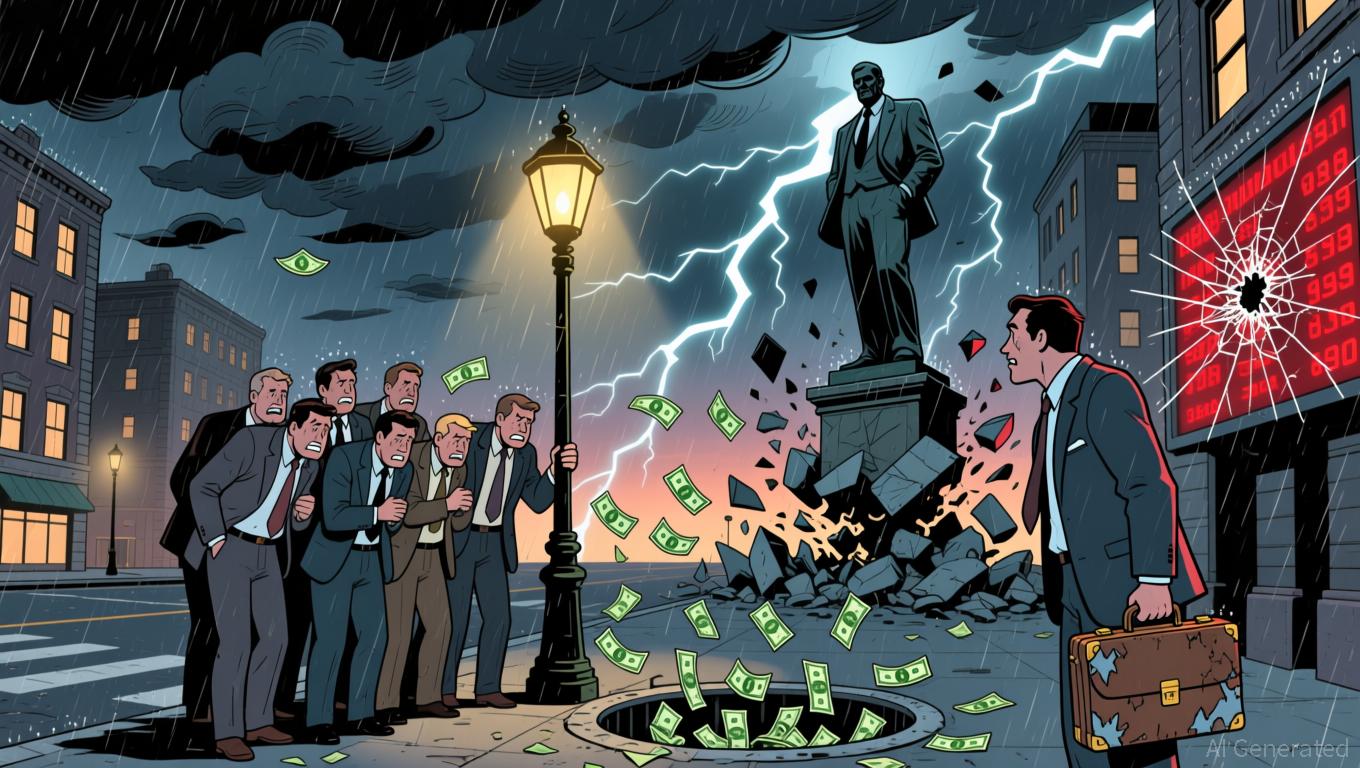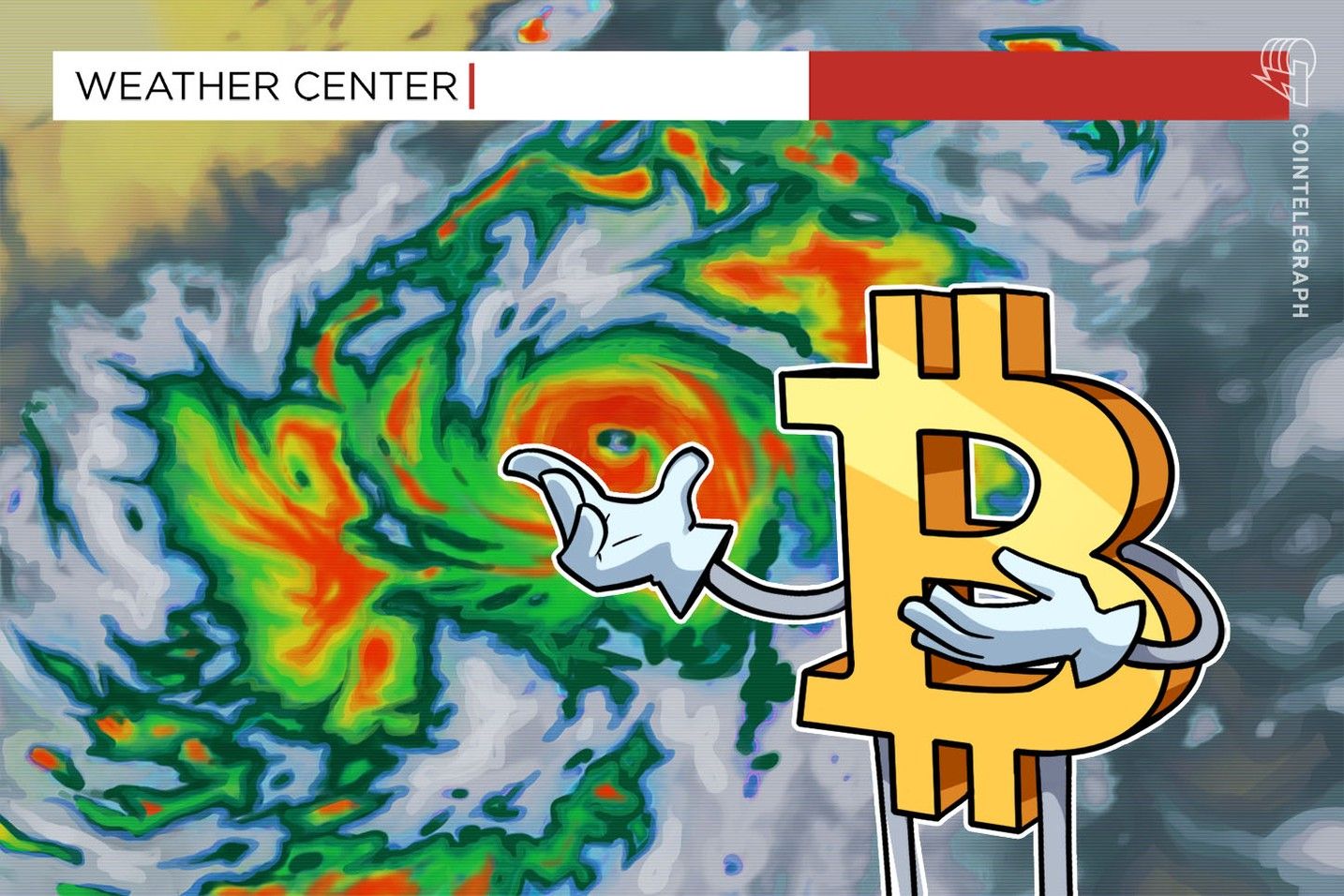Kiyosaki: Rising AI and Political Stalemate Set Stage for Imminent Wave of Job Losses
- Robert Kiyosaki warns mass layoffs could accelerate due to AI automation and U.S. government shutdown risks. - He highlights vulnerable sectors like admin/support roles, citing Goldman Sachs' 25% U.S. job exposure estimate to AI disruption. - Kiyosaki stresses political gridlock may delay AI infrastructure projects and workforce reskilling efforts critical for economic transition. - While acknowledging AI's potential for growth in healthcare/energy, he urges balanced policies prioritizing human-AI collab

Robert Kiyosaki, best known for writing Rich Dad Poor Dad, has delivered a serious alert regarding the potential for widespread layoffs, attributing the risk to both the swift progress of artificial intelligence (AI) and the possibility of a U.S. government shutdown. In his recent analysis, Kiyosaki pointed out that the combination of AI-powered automation and ongoing economic uncertainty could intensify job losses, resulting in an unpredictable climate for employees and companies. His comments arrive as anxiety grows about how fast technology is changing the employment landscape.
Kiyosaki’s concerns are consistent with broader forecasts about AI’s influence on jobs. Sam Altman, OpenAI’s CEO, has suggested that by 2030, AI might automate 30–40% of economic activities. Kiyosaki warns that the overlap of rapid AI integration and political instability could speed up workforce reductions. He noted that industries involving repetitive or routine work—like administrative support, customer service, and manufacturing—are especially at risk. This view is supported by a Goldman Sachs analysis, which predicts that almost a quarter of U.S. jobs could be heavily impacted by AI, with office and administrative positions being the most susceptible.
The risk of a government shutdown further complicates the situation. According to Kiyosaki, extended political deadlock could hinder infrastructure initiatives and regulatory systems essential for adapting to an AI-centered economy. For example, the partnership between OpenAI and Oracle to expand data centers—a key step in building AI infrastructure—could be stalled if federal funding is interrupted. Such setbacks might delay the rollout of AI solutions aimed at helping workers retrain and transition into new technology-focused roles.
Despite these obstacles, Kiyosaki also recognized that AI presents opportunities for economic advancement and innovation. He highlighted the potential for AI to boost efficiency in fields such as healthcare, education, and clean energy, where collaboration between humans and AI could drive significant change. However, he emphasized that these positive outcomes depend on whether leaders and companies focus on helping workers adapt. “It’s crucial to match technological advancement with a sense of social duty,” Kiyosaki said, underlining the importance of specialized training and fair access to AI technologies.
Recent research supports these warnings about AI’s effects on employment. A study from Northeastern University revealed that while AI can take over certain tasks, it often transforms job responsibilities instead of eliminating positions altogether. For instance, radiologists, once thought to be at risk from AI, have shifted their focus to more complex diagnostics and patient interaction. Still, Kiyosaki warned that such adaptability relies on timely investment in education and skills training, which could be delayed by political or economic challenges.
With these dual challenges facing the U.S. workforce, Kiyosaki urged a unified effort from policymakers, businesses, and educational organizations. He recommended policies that encourage the creation of AI-related jobs in fast-growing sectors like cybersecurity, data analysis, and renewable energy. He also called on companies to use AI in ways that support, rather than replace, human workers.
The pressing nature of these concerns is highlighted by current labor market trends. Research from Goldman Sachs indicates that temporary staffing—a key indicator of economic vitality—has decreased, suggesting a possible downturn. At the same time, job openings in manual and clerical fields have fallen sharply compared to before the pandemic, hinting at the early effects of AI-driven job changes. Kiyosaki’s warning is a prompt for all involved to address these developments before they escalate into a major crisis.
Source: [1] Robert Kiyosaki Warns of Mass Layoffs as Government Shutdown Threat Shakes the System – Featured
Disclaimer: The content of this article solely reflects the author's opinion and does not represent the platform in any capacity. This article is not intended to serve as a reference for making investment decisions.
You may also like
Ethereum News Update: While Ethereum Dominates with $201B in Tokenized Assets, Institutional Investments Grow Amid Price Challenges
- Ethereum leads tokenized assets with $201B, 64% of $314B market, driven by institutional AUM surging 2,000% since 2024. - ETH price struggles under $3,590 as technical indicators flag resistance at $3,880-$4,070 and rising exchange outflows. - Stablecoins ($18T annualized volume) and $12B RWA tokenize real-world assets, expanding Ethereum's utility beyond settlement. - Derivatives show $40.67B open interest but leveraged longs risk cascading liquidations if $4,070 resistance fails.

Bitcoin News Today: Bitcoin at a Turning Point: Is This a Bear Market or Just a Mid-Cycle Pause?
- Bitcoin trades above $105,000 amid debate over bear market confirmation vs. mid-cycle consolidation, with key technical levels at $102,000 and $94,000 critical for near-term direction. - Whale selling (815,000 BTC in 30 days) and ETF outflows ($1.22B in two weeks) contrast with $59.97B net inflows, highlighting fragile market dynamics. - Analysts split: CryptoQuant warns bearish signals (Bull Score 20) while Bitfinex cites 72% of Bitcoin in profit, comparing current correction to prior 22% rebounds. - Ri

Ethereum Updates Today: Bitcoin Drops to $98K Amid Economic Concerns, Institutional Investors Signal Market Strength
- Bitcoin fell below $98,000 on Nov 14, 2025, driven by heavy long-term holder selling and institutional outflows amid macroeconomic uncertainty. - Ethereum dropped over 8% to $3,500 as leveraged positions worth $1B were liquidated, with China's weak economic data exacerbating risk-off sentiment. - U.S. spot Bitcoin ETFs recorded $1.22B in outflows, contrasting with Ethereum's $508M redemptions and Solana's $137M inflows. - Analysts view the correction as a "mid-cycle consolidation," noting historical 22%

3 reasons why Bitcoin and risk markets sold off: Is a recovery on the horizon?
